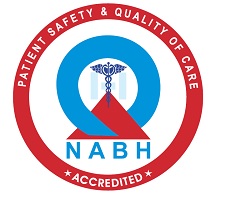Prime Treatment Programmes in Ayurveda
STRESS MANAGEMENT PROGRAMME
Short and power packed program for one day for those of you who are stressed out due to heavy work schedules, meet ing deadlines, long hours in work load. The therapeutic procedure in this package is specially formulated for those who get the 'burnt out feeling'and for super stressed-out businessman. The package consists of a free consultation with our Ayurvedic doctor, synchronized body massage with traditional Ayurvedic oils, Herbal steam bath & Shirodhara.
REJUVENATION PROGRAMME
Experience this three days program, which reinvigorates and revitalizes you. Best for getting rid of stress, weariness and fatigue. The feeling of well being is infused to the body and soul. The package includes a free consultation with our Ayurvedic doctor; synchronized body massage using medicated oils as per traditional Ayurvedic procedures. Herbal steam bath, Shirodhara, Netra Trapana, includes Yoga and relaxation techniques. Guidelines on Ayurvedic diets are also given. This package gives you mental and physical relaxation; reinvigorate body and mind to experience the fullness of life.
DETOXIFICATION / BODY PURIFICATION PROGRAMME
Detoxification & Rejuvenative Program which includes Panchakarma procedures, is meant to purify the whole body by eliminating the accumulated toxins from it. This package includes treatments like Abhyanga (Ayurveda body massage), Swedana (herbal steam bath), Vamana (Emesis), Virechana (Purgation), Snehavasti (Medicated oil enema), Kashayavasti (Medicated decoction enema), Nasya (Drug administration through nose), Shirodhara, Tarpana, Face care & some other therapies customized individually. The specialty of this treatment is that it can be administered both in a healthy, as well as the diseased person. When a healthy person subjects himself to Panchakarma, it has a preventive, restorative and rejuvenative effect on the body. Panchakarma administered to a diseased person, after careful examination and diagnosis of the condition, eliminates the accumulated toxins from the body, which had been root cause of the ailment. Any one or two these procedures are offered in this package based on individual requirements and the duration of the treatment at our center.
EXECUTIVE'S AND IT PROFESSIONAL'S PROGRAMME
Two days exclusive health package developed for the fast paced Executive and IT Professional, who is continuously exposed to computer screen, prone to Computer vision syndrome, confined to sitting on a chair for long hours with prolonged use of fingers for operating keyboard leading to carpal tunnel syndrome (repetitive strain injuries), working late hours without proper sleep, physical and mental stress of meeting deadlines and have untimely food. Package includes free consultation with Ayurvedic doctor, synchronized body massage with medicated oil in typical Kerala tradition, Herbal steam bath and Shirodhara. Also Netra Tarpana especially for eye care. Relaxation techniques explained. Guidelines to traditional Ayurvedic diet for health and nutrition. This package revitalizes you, sooths mind and body. A most effective way to get back to the shape and get the vital energy to start your work afresh, optimizing your health and creative potential.
FREQUENT TRAVELER'S PROGRAMME
Package for the frequent travelers, to relieve the tiredness, weariness, fatigue, and the stress and strain caused while and after traveling. This package includes free consultation with our Ayurvedic doctor, traditional body massage with medicated oil and Herbal steam bath.
EVE'S BEAUTY CARE PROGRAMME
A special package offered for ladies. A comprehensive beauty care program based on treatment modalities developed by the traditional Ayurvedic practitioner of Kerala. This program includes herbal oil massage, herbal steam bath, face packs using freshly ground herbs, skin care, hair care, eye care and related healthy treatment to the body. Our Ayurvedic doctor will recommend the suitable procedures according to individual's body constitution. Also guidelines on diet as per Ayurvedic traditions are given. This package will also help to improve the complexion, give shine and vitality to skin, improves the tone of the body, improves blood circulation and revitalizes the body.
OLD AGE CARE PROGRAMME
A happy and comfortable old age is the fruit of well-spent childhood, youth and middle age. However, old age brings along with it many aging health problems like constipation, indigestion, sleeplessness, exhaustion, wrinkled skin, diminishing sensory faculties, etc. The rejuvenation therapies like Pizhichil, Njavarakizhi, etc. strengthen the system, invigorates the immunity and imparts a freshness in the body. Panchakarma therapies, particularly medicated enemas relieve constipation & correct digestion. Shirodhara done over the head nourishes the head, which is the abode of all sense organs. On the whole, this package wages the harmony of mind, body & soul.
SPINE AND NECK CARE PROGRAMME
The main sites for arthritic manifestation in the vertebral column are the lumbar and cervical regions. This treatment programme includes special massages, kativasti, snehavasti , kashayavasti, kizhi, njavarakizhi etc. This is also very effective for cervical spondylosis, osteo porosis, low backaches, sciatica etc.
WEIGHT REDUCTION PROGRAMME
Weight Reduction Program as per Ayurvedic system to reduce the excess body fat. This package includes free consultation with our Ayurvedic doctor, Massage with powder of various herbs, herbal steam bath, Ayurvedic basti (enema), Herbal medicines and guidelines on diet.

